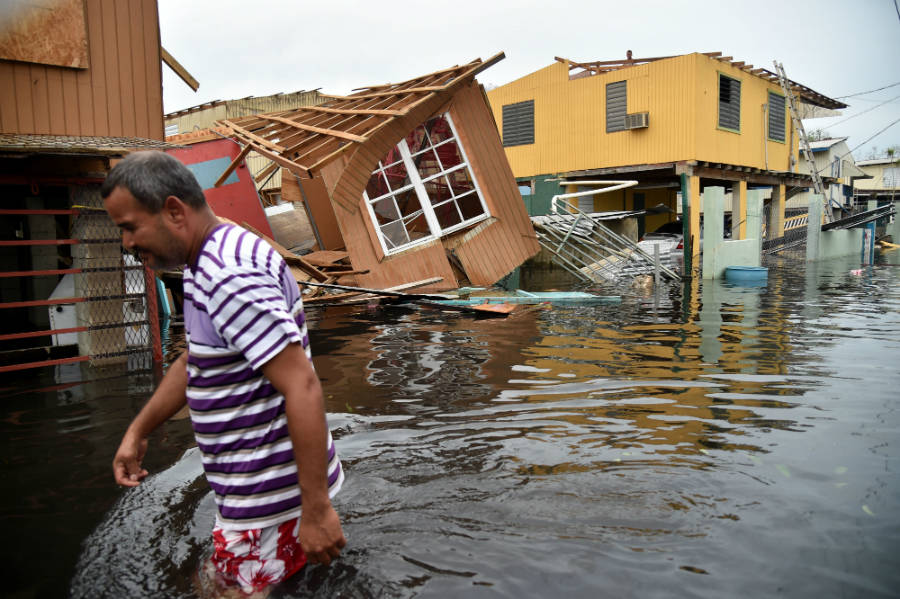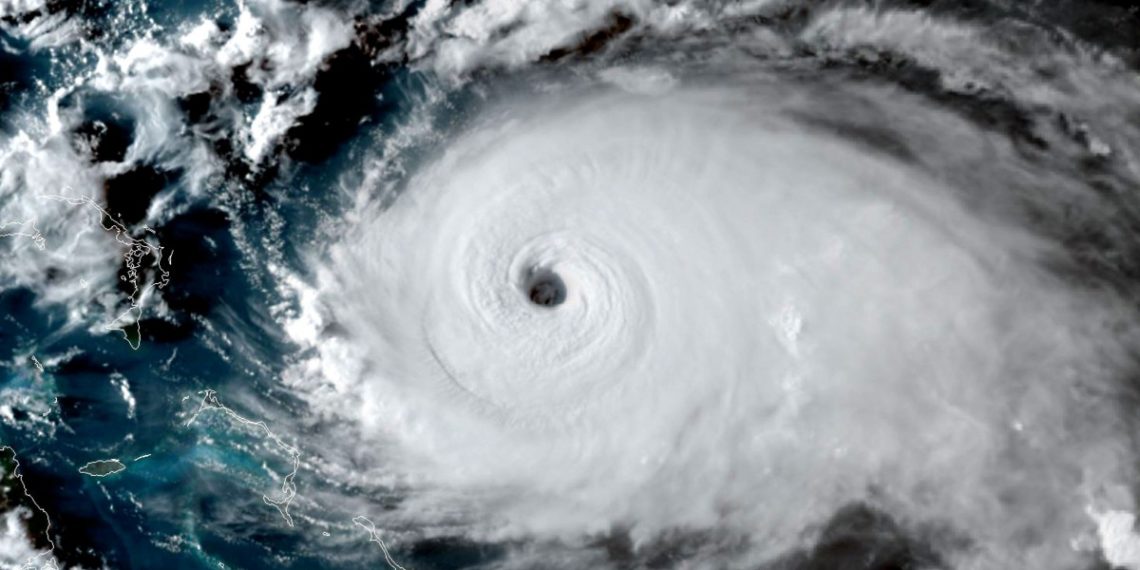There is no way to minimize the incomprehensible misery and destruction that hurricane Dorian inflicted on the Bahamas. For nearly two days, anguished inhabitants were subjected to unfathomable suffering and heartbreak from a Category 5 hurricane that would just not go away.
Putting their lives back together will be the beginning of recovery after years of grief and demolition. The international effort to provide humanitarian assistance is just getting underway, and the needs are enormous – both in the immediate term and perhaps over the next decade.
Dorian is just one example of extremely damaging events whose intensity and frequency can be attributed in large measure to a human-induced changing climate. Indeed, its exaggerated strength in the middle of a very active hurricane season was a well-known signature of this link, but its stalling over the Bahamas is evidence of a new signature.
Climate Change and Hurricanes
Although it is difficult to tie any single storm to global warming, correlations between trends in temperature and the character of hurricanes have been evident for some time. Now it is becoming clear that climate change is altering the behaviors of atmospheric systems that steer storms of all sizes. They are showing a tendency to weaken at very inopportune times. This means that the hurricanes and cyclones that are growing in intensity due to historically hot oceans and air temperatures are now frequently being deprived of any sense of direction.
New science explains why tropical cyclones around the world have, alarmingly, become prone to just sitting still for a while until conditions change. Hurricane Dorian was not the first storm to show this behavior. Harvey (2017) stalled over Houston, and Florence (2017) stalled over the Carolina coastline. Dorian joined a growing and dangerous club of enormous storms that sometimes get lost. Since then, typhoon Hagibis (the worst storm in Tokyo in 60 years) joined the club.
As a result, storms’ destructive potentials derived from increased storm surge, elevated rainfall totals, and intensified winds, wind gusts, and tornadoes are becoming an even greater source of enormous risk. The damages from stalled tropical cyclones have simply exploded.
These new insights add renewed urgency to confronting two fundamental questions: how should we respond to growing climate risks, and are we prepared for the increasing risks?
Responding to Growing Climate Risks
In 2007, the U.N.’s Intergovernmental Panel on Climate Change concluded by consensus of over 280 nations that reacting to climate change “involves an iterative risk management process that includes both adaptation and mitigation.”
“Iterative” means that we should expect to make adjustments as an uncertain future unfolds and new science emerges. “Risk” is the product of the likelihood of an event and the consequences that it would impose on natural and social systems. “Risk management” is not a foreign concept; its application tells us to take account of more than just the most likely future. We do it all the time in our personal lives: we install locks for our cars and houses, invite guard dogs into our lives, and buy insurance. In responding to climate change, the same concept is being applied on a national and international scale.
“Adaptation” means working to minimize consequences. Mitigation implies reducing the strength of the sources of these consequences: abating global warming by reducing emissions.
This video captures the history of #climatechange in 45 seconds.
Add up all emissions since 1850 and the U.S. remains the biggest carbon polluter in history. Shouldn’t it be a leader in advancing #climate solutions?
Check out https://t.co/gXdF2YPaW1 to help tell your story pic.twitter.com/CbZQA0gJ6x
— WRI Climate (@WRIClimate) March 27, 2019
Abatement (mitigation) is essential, but it must be recognized that the climate problem cannot “be fixed” or “rolled back.” We are already committed to warming of between 1 and 1.5 degrees Celsius above pre-industrial levels. Even if we were to stop emitting polluting gases today, the pent-up heat in the oceans would put us closer to the upper part of this range. Achieving a 1.5-degree limit is therefore virtually impossible. A 2-degree limit is wildly aspirational, but even a 3-degree limit will be difficult to achieve.
And so, we are left with a combination of three choices to consider: to adapt, abate, or suffer.
In making investments in adaptation, resources are critical and in short supply. In the case of Dorian, there was enough time to get people in the United States out of harm’s way, but options designed to preserve residential and commercial property, protect infrastructure, or save ecosystems were alarmingly few. Sadly, by way of contrast, residents of the Bahamian Islands had nowhere to go and their properties were not nearly as robust, and so, they suffered the greatest damages.
Are We Prepared?
Coastal communities around the world are getting an idea of what the future might look like, and it is scary. Risk management tells these communities that they may have to be satisfied with getting people out of danger as efficiently as possible when needed. They should also begin to put longer-term measures into place: productive investments that would limit the storm surges, improve road networks for escape, strengthen building standards, reduce power system vulnerability, and other physical versions of insurance. These investments take time and require resources.

In the longer term, planners should consider investments whose streams of benefits accumulate over many decades. Governments of all scales must recognize that climate risk exists so that they can leverage private investments. Federal governments must prepare for hazards that span multiple states and provide aid for jurisdictions that are resource-starved.
In all cases, planners, governments, and citizens must prepare to handle the residual effects of possible futures that could overwhelm their plans, and all must recognize that the suffering caused by those residuals could be immense.
Risk Management
“Adapt, abate, or suffer are our only choices,” said scientist John Holdren multiple times during his eight-year tenure as President Barack Obama’s senior advisor on science and technology issues. He was right.
Since we live on a planet where climate plays an enormous role in determining the frequencies and intensities of extreme events that can affect our lives, we must strive to invest in projects, policies, and technologies that make the worst futures less likely and the best futures more likely. We need to devote significant resources to plans, programs, and technologies that can abate the pace of climate change by reducing emissions even as we invest significantly in adaptation.
That is what risk management looks like at a national or global scale.






















